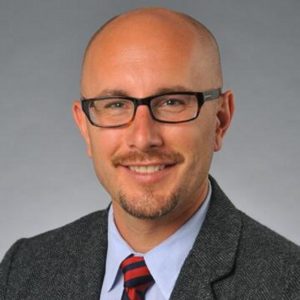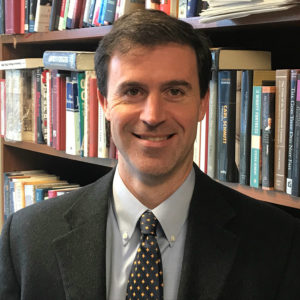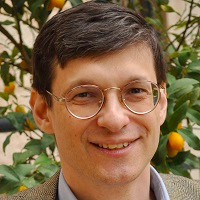Varieties of American Conservatism
Discover the intellectual roots of modern conservatism.
March 9 – March 11, 2018
Washington, DC
The conservative movement is divided over the question of Donald Trump. At issue is the philosophy of nation-state populism that drove his insurgent campaign and led to his presidency. This philosophy, which differs in emphasis and approach from that of other post-Cold War presidents, is both enduring and undefined. Reaching as far back as Andrew Jackson, and carrying through, in different ways, Ronald Reagan, Ross Perot, Patrick Buchanan, and Sarah Palin, the nation-state populist tradition diverges from conservatism on trade, immigration, entitlements, and infrastructure, and from liberalism on sovereignty, nationalism, identity politics, and political correctness.
In this weekend seminar, students will explore the phenomenon of populism, its causes, and its potential consequences for American politics. It will be led by Matthew Continetti, an astute observer of American politics and editor-in-chief of The Washington Free Beacon.
Matthew Continetti on Populism & Nationalism
The weekend seminar will take place in Washington, DC. It is a full-time commitment for Friday–Sunday, with required sessions in the morning, afternoon, and some evenings.

Matthew Continetti is the director of domestic policy studies and the inaugural Patrick and Charlene Neal Chair in American Prosperity at the American Enterprise Institute (AEI), where his work is focused on American political thought and history, with a particular focus on the development of the Republican Party and the American conservative movement in the 20th century.

Matthew Continetti is the director of domestic policy studies and the inaugural Patrick and Charlene Neal Chair in American Prosperity at the American Enterprise Institute (AEI), where his work is focused on American political thought and history, with a particular focus on the development of the Republican Party and the American conservative movement in the 20th century.
A prominent journalist, analyst, author, and intellectual historian of the right, Mr. Continetti was the founding editor and the editor in chief of The Washington Free Beacon. Previously, he was opinion editor at The Weekly Standard.
Mr. Continetti is the author of three books, including, most recently, The Right: The Hundred-Year War for American Conservatism (Basic Books, 2022).
He has a B.A. in history from Columbia University.
Readings:
Discussion Questions:
Yuval Levin is a resident scholar at the American Enterprise Institute and editor of National Affairs. He is also a senior editor of The New Atlantis, and a contributing editor of National Review and previously The Weekly Standard. Prior to joining AEI, he served as Vice President and Hertog Fellow at the Ethics and Public Policy Center. He has been a member of the White House domestic policy staff (under President George W. Bush), Executive Director of the President’s Council on Bioethics, and a congressional staffer. He is the author of The Fractured Republic (2016) and most recently, A Time To Build (2020).
Readings:
Discussion Questions:
Readings:
Discussion Questions:

Matthew Continetti
Matthew Continetti is the director of domestic policy studies and the inaugural Patrick and Charlene Neal Chair in American Prosperity at the American Enterprise Institute (AEI), where his work is focused on American political thought and history, with a particular focus on the development of the Republican Party and the American conservative movement in the 20th century.

Daniel DiSalvo
Daniel DiSalvo is a Senior Fellow at the Manhattan Institute’s Center for State and Local Leadership and an Assistant Professor of Political Science at The City College of New York-CUNY. His scholarship focuses on American political parties, elections, labor unions, state government, and public policy.

Diana Schaub
Diana Schaub is a nonresident senior fellow at the American Enterprise Institute (AEI), where her work is focused on American political thought and history, particularly Abraham Lincoln, Frederick Douglass, African American political thought, Montesquieu, and the relevance of core American ideals to contemporary challenges and debates. Concurrently, she is Professor Emerita of Political Science at Loyola University Maryland, where she taught for almost three decades.

Richard M. Reinsch II
Richard M. Reinsch II is Editor-in-Chief and Director of Publications at AIER. He is coauthor, with the late Peter A. Lawler, of A Constitution in Full: The Unwritten Foundation of American Liberty.

Adam J. White
Adam J. White is the Laurence H. Silberman Chair in Constitutional Governance and senior fellow at the American Enterprise Institute, where he focuses on the Supreme Court and the administrative state. Concurrently, he codirects the Antonin Scalia Law School’s C. Boyden Gray Center for the Study of the Administrative State.

Yoram Hazony
Yoram Hazony is an Israeli philosopher, Bible scholar, and political theorist. He is President of the Herzl Institute in Jerusalem, and Director of the John Templeton Foundation’s project in Jewish Philosophical Theology. His books include The Virtue of Nationalism and The Philosophy of Hebrew Scripture.